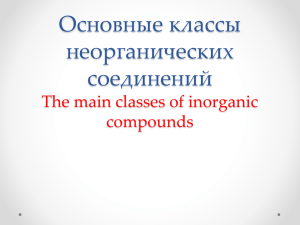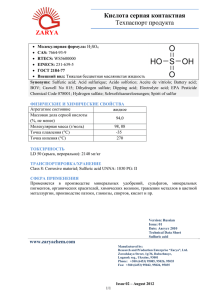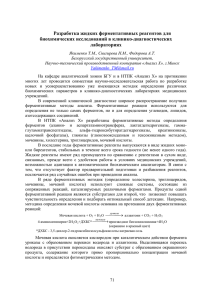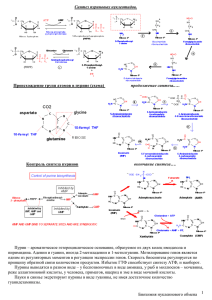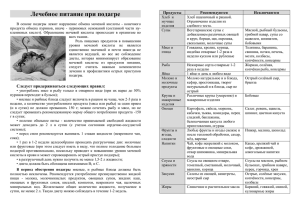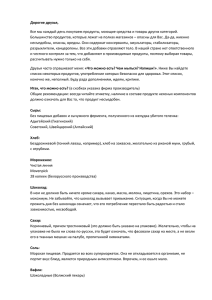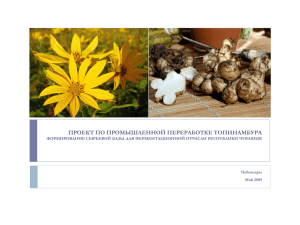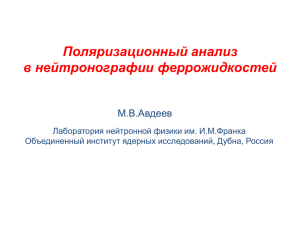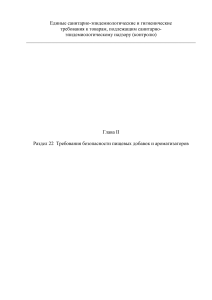Мочевая кислота и деятельность центральной нервной системы
реклама
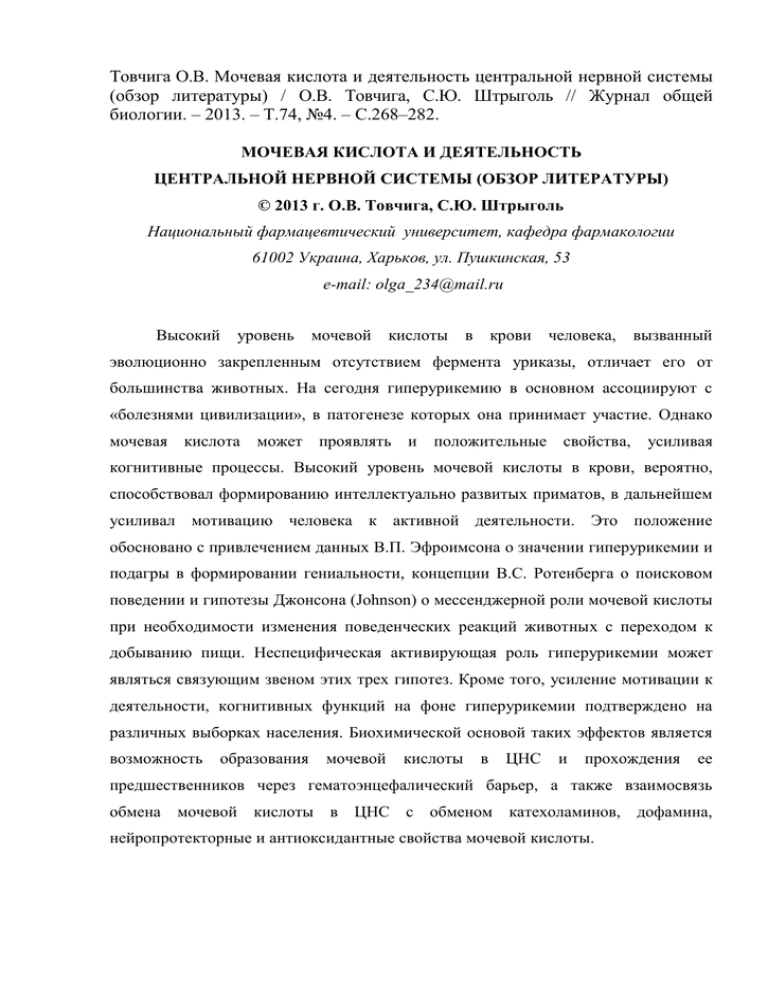
Товчига О.В. Мочевая кислота и деятельность центральной нервной системы (обзор литературы) / О.В. Товчига, С.Ю. Штрыголь // Журнал общей биологии. – 2013. – Т.74, №4. – С.268–282. МОЧЕВАЯ КИСЛОТА И ДЕЯТЕЛЬНОСТЬ ЦЕНТРАЛЬНОЙ НЕРВНОЙ СИСТЕМЫ (ОБЗОР ЛИТЕРАТУРЫ) © 2013 г. О.В. Товчига, С.Ю. Штрыголь Национальный фармацевтический университет, кафедра фармакологии 61002 Украина, Харьков, ул. Пушкинская, 53 e-mail: [email protected] Высокий уровень мочевой кислоты в крови человека, вызванный эволюционно закрепленным отсутствием фермента уриказы, отличает его от большинства животных. На сегодня гиперурикемию в основном ассоциируют с «болезнями цивилизации», в патогенезе которых она принимает участие. Однако мочевая кислота может проявлять и положительные свойства, усиливая когнитивные процессы. Высокий уровень мочевой кислоты в крови, вероятно, способствовал формированию интеллектуально развитых приматов, в дальнейшем усиливал мотивацию человека к активной деятельности. Это положение обосновано с привлечением данных В.П. Эфроимсона о значении гиперурикемии и подагры в формировании гениальности, концепции В.С. Ротенберга о поисковом поведении и гипотезы Джонсона (Johnson) о мессенджерной роли мочевой кислоты при необходимости изменения поведенческих реакций животных с переходом к добыванию пищи. Неспецифическая активирующая роль гиперурикемии может являться связующим звеном этих трех гипотез. Кроме того, усиление мотивации к деятельности, когнитивных функций на фоне гиперурикемии подтверждено на различных выборках населения. Биохимической основой таких эффектов является возможность образования мочевой кислоты в ЦНС и прохождения ее предшественников через гематоэнцефалический барьер, а также взаимосвязь обмена мочевой кислоты в ЦНС с обменом катехоламинов, дофамина, нейропротекторные и антиоксидантные свойства мочевой кислоты. URIC ACID AND CENTRAL NERVOUS SYSTEM FUNCTIONING (A LITERATURE REVIEW) O.V. Tovchiga, S.Yu. Shtrygol’ National University of Pharmacy, Department of Pharmacology 61002 the Ukraine, Kharkiv, Pushkinskaya, 53 e-mail: [email protected] High level of uric acid in blood distinguishes humans from other studied species of mammals. The reason behind this is the absence of uricase enzyme, which is evolutionary determined. Hyperuricemia can be considered as a factor of “diseases of civilization” development, and this very aspect mostly attracts attention of modern scientists. However, uric acid can manifest positive features as well, namely it can intensify cognitive processes. Probably, high level of uric acid in blood facilitated the evolution of intellectually advanced primates. Later, it has been enhancing man’s motivation for active work. In the present review, these points are substantiated using data by V.P. Efroimson on the role of hyperuricemia and gout in forming of man’s genius, along with the search activity concept by V.S. Rotenberg. Also, involved is the hypothesis by R. Johnson on possible activation role of uric acid in modifi cations, when being necessary, of animals’ behavioral reactions, i.e. “the foraging response” being related with hyperuricemia at the stage of transition to active feeding. Perhaps, non-specifi c activation role of hyperuricemia is the very factor that links all three hypotheses together. Besides, enhancement of cognitive functions and motivations for activity against the background of hyperuricemia is affi rmed in different population samples. Biochemical base of such effects consists in possibility of uric acid synthesis in central nervous system and propagation of its precursors through the blood-brain barrier. Also, the interrelations between metabolism of uric acid in the central nervous system and metabolism of catecholamines and dopamine appear to be important, along with uric acid neuroprotective and antioxidative properties.
